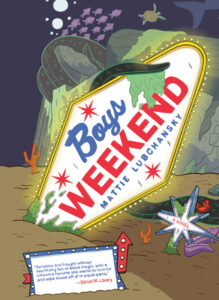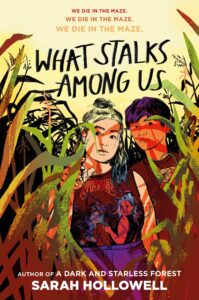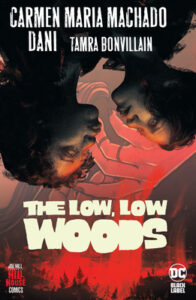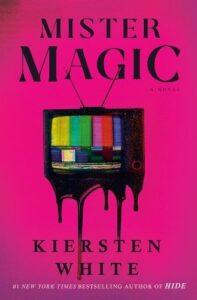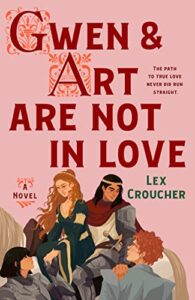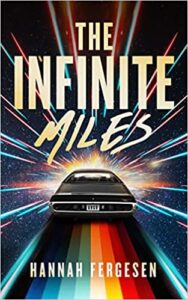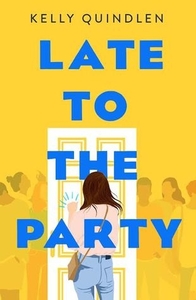Boys Weekend a satirical horror graphic novel about Sammie, a trans feminine person who is invited to a bachelor party of an old friend as the “best man.” While there, Mattie seems to be the only one concerned about the cult sacrificing people. This was already on my TBR, and I was happily surprised to find out this one is sapphic! Sammie has a wife.
This is illustrated in a style I associate more with adult cartoons than graphic novels, but it works well for this dark comedy. Sammie is conflicted about whether to attend Adam’s bachelor party, but Adam has been fairly accepting after they came out, so they decide to take the leap. The party takes place at a sci-fi, ultra capitalist version of Las Vegas: it’s called El Campo, and on this island, anything goes. Including hunting your own clone for casual entertainment. Adam’s friends are all tech bros, and Sammie is uncomfortable with them on multiple levels: while their home is decorated with ACAB signs and pride flags, Adam’s friends are interested in strip clubs, get rich quick schemes, and everything else associated with hetero masculinity.
Even before the outright horror elements come in, this is an unsettling and upsetting environment to be in. Sammie constantly misgendered, both from strangers and friends/acquaintances who should know better. The horror plot is really just an exaggeration of the cult of masculinity that the bachelor party is so devoted to. There is some gore, but as a whole, it is focused on the satire, not being outright scary.
It’s difficult reading Sammie experience the unrelenting transmisogyny that they do, but there’s also a defiant, hopeful element to this story. It explores the complicated question of which relationships are worth holding onto after coming out—what about the friends and family who don’t get it but aren’t actively hateful? When is it time to walk away, and when is it worth reaching out and trying to repair the relationship?
Despite the horror, the micro- and macroaggressions, and the constant misgendering, this wasn’t bleak. Sammie reaches out to their wife and other queer friends throughout the story, asking for their advice and support over the phone, so even when they are surrounded by assholes, they don’t feel alone. Sammie is secure in their identity and self-worth and has support from coworkers, friends, and in their marriage.
While having lots of over-the-top elements—El Campo is something else—I actually teared up a bit at the end. The setting and plot might be cartoony, but the emotion is grounded. I recommend this both to horror fans and to those less familiar with the genre: as long as you’re okay with a few pages of gore, this is well worth the read.

